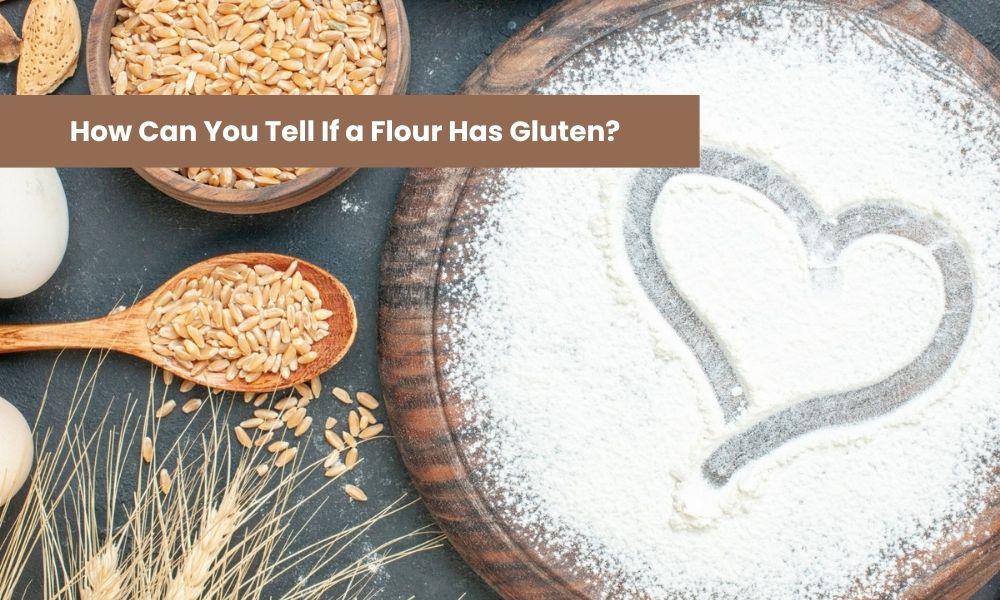
Which Flour is Gluten Free? A Complete Guide
Gluten is a type of protein found in grains such as wheat, barley, and rye. When these grains are processed and heated, gluten develops a sticky and elastic texture, which gives bread and baked goods their chewy structure.
While gluten is safe for most people, some individuals experience adverse reactions, including bloating, stomach pain, or indigestion.
In severe cases, consuming gluten can trigger celiac disease, an autoimmune disorder that damages the small intestine.
For those sensitive to gluten or following a gluten-free diet, choosing the right flour is essential. But which flour is gluten-free, and how do you use it in daily cooking? Let’s explore.
What is Gluten-Free Flour?
Gluten-free flour refers to flours made from grains, seeds, or legumes that naturally do not contain gluten. These flours are ideal for people with gluten intolerance, celiac disease, or anyone looking to reduce gluten intake.
Unlike wheat flour, gluten-free flours may require blending with other flours or binding agents (like xanthan gum or flaxseed) to achieve a similar texture in baking.
List of Popular Gluten-Free Flours
| Flour Name | Is it Gluten Free? | Why it is Gluten Free | Typical Uses |
|---|---|---|---|
| Gram Flour (Besan) | Yes | Made from chana dal, naturally gluten-free | Pancakes, fritters, soups |
| Rice Flour | Yes | Made from ground rice grains | Cakes, bread, snacks |
| Ragi Flour (Finger Millet) | Yes | Made from finger millet, no gluten | Roti, porridge, cookies |
| Corn Flour (Maize) | Yes | Made from corn kernels | Baking, thickening sauces |
| Jowar Flour (Sorghum) | Yes | Made from sorghum grain | Flatbreads, rotis, porridge |
| Millet Flour | Yes | Made from various millets like bajra | Roti, pancakes, porridge |
| Rajgira Flour (Amaranth) | Yes | Made from amaranth seeds | Roti, porridge, baking |
| Mustard Flour | Yes | Made from ground mustard seeds | Thickening sauces, baking |
| White Rice Flour | Yes | Refined rice flour | Desserts, batter for frying |
| Durum Flour | No | Made from wheat, contains gluten | Pasta, bread |
| Rye Flour | No | Contains gluten | Bread, crackers |
| Barley Flour | No | Contains gluten | Baking, malt-based recipes |
Tips for Using Gluten-Free Flour
- Blend flours: Combining flours like rice, ragi, and corn can improve texture.
- Add binding agents: Use xanthan gum, chia seeds, or flaxseeds for elasticity.
- Check labels: Some flours may be processed in facilities that handle wheat—always verify “certified gluten-free.”
- Experiment gradually: Gluten-free baking can be different; start with simple recipes.
Conclusion
Choosing the right flour is essential for gluten-free diets. Flours like gram, rice, ragi, corn, jowar, millet, and rajgira are naturally gluten-free and versatile for Indian cooking.
Avoid wheat-based flours like durum, rye, or barley, which contain gluten. Always check labels, blend flours if needed, and adjust recipes for best results.
FAQ
Q1. Is gram flour gluten free?
Yes, gram flour, also called besan, is made from chana dal and is naturally gluten-free.
Q2. Is corn flour gluten free?
Yes, corn flour is gluten-free, making it suitable for gluten-intolerant individuals.
Q3. Is rice flour gluten free?
Yes, rice flour is made from finely ground rice and does not contain gluten.
Q4. Is ragi flour gluten free?
Yes, ragi (finger millet) flour is naturally gluten-free and rich in calcium and fiber.
Q5. Is durum flour gluten free?
No, durum flour is made from wheat and contains gluten.
Q6. Where can I buy gluten free flour in India?
You can buy gluten-free flours at online stores like Amazon India, BigBasket, 1mg, and local health food stores. Look for “100% gluten-free” labels to ensure safety.
Q7. How much gluten free flour should I use compared to regular flour?
Gluten-free flours absorb liquids differently. Typically, use 1:1 substitution with added binding agents like xanthan gum or flaxseed to improve texture in baking.
Q8. Is millet flour gluten free?
Yes, millets like bajra and foxtail millet are gluten-free.
Q9. Is rye or barley flour gluten free?
No, both rye and barley contain gluten and should be avoided on a gluten-free diet.
Share
